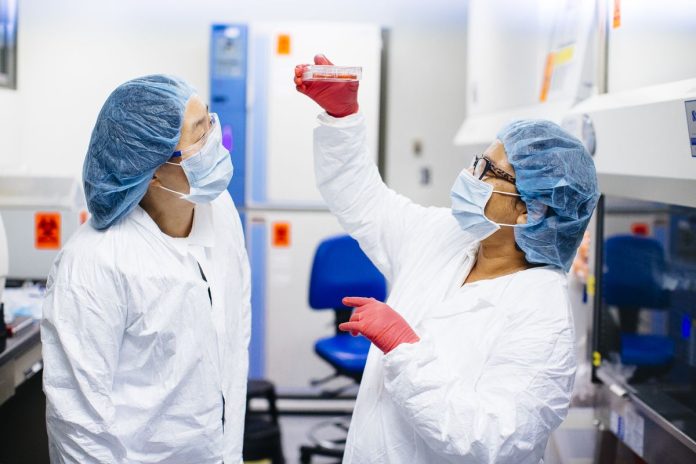Researchers affiliated with the UCLA Eli and Edythe Broad Center of Regenerative Medicine have discovered two genes that are involved with the immune system and are related to the functioning of stem cells. Progenitor cells are similar to stem cells because they have a tendency to differentiate into a specific type of cell; however, they are more specific than a stem cell and can be driven to develop into a “target” cell. The most important difference between stem cells and progenitor cells is that stem cells can reproduce indefinitely, whereas progenitor cells can replicate only a limited number of times. The two genes play a vital role in how progenitor stem cells are activated to fight infection. The investigators note that their discovery yield a better understanding of the role progenitor cells can play in immune system response; thus, they could lead to the development of more effective treatments for a wide variety of diseases. The findings of the two-year study were published online in the journal Current Biology.
The researchers explain that progenitor cells are the link between stem cells and fully differentiated cells of the blood system, tissues, and organs. They are involved in a maturation process, known as differentiation, which is determined in part by the original environment that the progenitor cell arose from, called the niche. Many of these progenitors are maintained in a quiescent state (standby mode) and are ready to differentiate in response to immune system challenges such as stress, infection or disease.
First author Dr. Gabriel Ferguson, a postdoctoral fellow in the genetics lab of Dr. Martinez-Agosto notes that the team built upon the lab’s previous research that utilized the blood system of the fruit fly Drosophila melanogaster. That research found that a specific set of signals must be received by progenitor cells to activate their differentiation into cells that can fight infection after injury. Dr. Ferguson focused on two genes previously identified in stem cells but not in the blood system: Yorkie and Scalloped. He discovered that they are required in a newly categorized cell type called a lineage specifying cell. These cells then essentially function as a switch and send the required signal to progenitor cells.
The investigators also discovered that when the progenitor cells did not receive the required signal, the fruit fly would not make the mature cells required to fight infection. This shows that the ability of the blood system to fight outside infection and other pathogens is directly related to the signals sent by this new cell type. Dr. Martinez-Agosto explained, “The beauty of this study is that we now have a system in which we can investigate how a signaling cell uses these two genes Yorkie and Scalloped, which have never before been shown in blood, to direct specific cells to be made. It can help us to eventually answer the question of how our body knows how to make specific cell types that can fight infection.”
The researchers next hope that future studies will examine these genes beyond Drosophila and extend to mammalian models. These animal models will be used by the research community to study the role of the genes Yorkie and Scalloped in different niche environments. “At a biochemical level, there is a lot of commonality between the molecular machinery in Drosophila and that in mice and humans,” noted Dr. Ferguson. He added, “This study can further our shared understanding of how the microenvironment can regulate the differentiation and fate of a progenitor or stem cell.” Dr. Martinez-Agosto said, “Looking at the functionality of these genes and their effect on the immune response has great potential for accelerating the development of new targeted therapies.”















